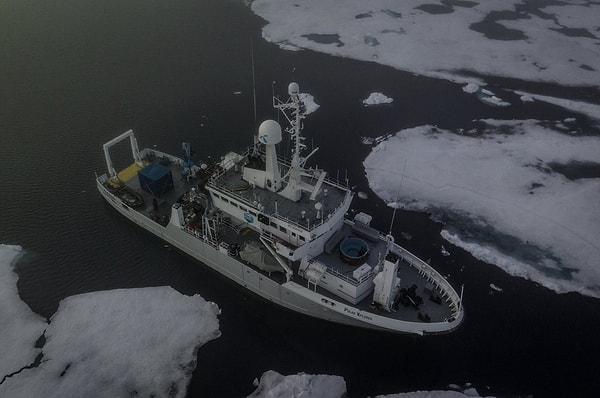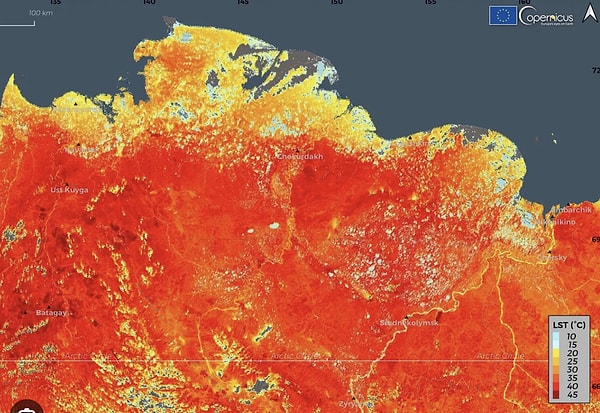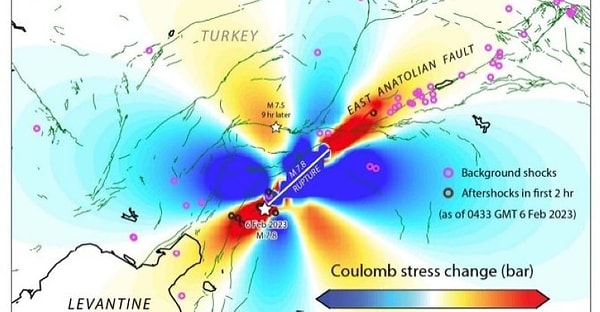Turkish Scientists Successfully Conclude Pioneering Arctic Expedition During Hottest July on Record
A dedicated team of Turkish scientists recently concluded a successful month-long journey as part of the third National Arctic Scientific Expedition. Led by Captain Özgün Oktar, the 11-member team embarked on their scientific mission aboard the Norwegian-flagged research vessel, PolarXplorer, under the auspices of the Presidency and Ministry of Industry and Technology. Coordinated by the Scientific and Technological Research Council of Türkiye – Marmara Research Center (TÜBITAK MAM), the expedition conducted extensive research at 28 different station points in the Arctic region.
Throughout their voyage, the team engaged in various scientific activities, including studying ecosystem adaptation in the Arctic Ocean, collecting phytoplankton samples, identifying marine pollutants, monitoring seawater's physical parameters, observing atmospheric pollution, and conducting meteorological assessments. Additionally, the team analyzed environmental impacts and the potential effects of new trade routes, closely tracked sea ice movements, and observed marine mammals to better understand the region's changing dynamics.

The scientists encountered a record-breaking hot July during their Arctic journey, further highlighting the profound effects of global warming on this fragile ecosystem. Captain Oktar emphasized the significance of polar regions for climate change research, as they provide valuable insights into the consequences of environmental transformations on various species and habitats.
'The month of July, in which we completed our expedition, went down in history as the hottest month worldwide. We also experienced this unprecedented temperature surge in the Arctic region. At approximately 78 degrees north latitude, we are witnessing air temperatures reaching around 10 degrees, which speaks volumes about the environment and climate change. The warming we observe has significant implications, including glacier melting and their subsequent merging with the sea,' said Captain Oktar.

Despite the scorching temperatures, the researchers persevered, working diligently at various stations to gather essential data. However, during one of their samplings at the 11th station, situated at 80.1 degrees latitude, the team encountered a unique situation when two polar bears approached their research vessel.
Climate change-induced habitat loss and disruptions in food sources have led polar bears to increasingly seek human presence. As the team observed the bears' behavior with mixed emotions, the encounter underscored the urgent need to mitigate the effects of climate change on these endangered creatures.
'Their close approach to our vessel scared us. As we observed the bears afterward, we all went out to the bridge, prioritizing safety. They came close to the lowest part of the vessel, and we anticipated that they might attempt to climb aboard. However, the exhaust smell likely deterred them, and they moved farther away,' recalled Captain Oktar.
Highlighting the polar bears' resilience as they hunt monk seals, Captain Oktar emphasized the grim reality the species faces: 'By 2030, there may be no sea ice left during the summer season, leading to the polar bears' loss of crucial feeding grounds.'

Beyond their scientific research, the expedition also showcased a valuable project designed by the winner of the TÜBITAK BIDEB 2204-D High School Students Climate Change Research Projects competition. This project aimed to address ocean surface pollution caused by oil spills, offering promising insights into combating this environmental challenge.
Burcu Özsoy, the coordinator of the scientific expedition, praised the student's project, which contributed to the ongoing efforts in pollution-related technologies and potential advancements. She noted, 'One of the greatest risks in shipping is oil pollution spreading in the sea and ocean surface. Today, efficient technology and methods have not been fully realized. Therefore, the work of our student represents a significant and positive project for us.'
The team's Arctic journey also facilitated international collaborations, as they visited various research stations, fostering knowledge exchange among scientists from different countries.

The third National Arctic Scientific Expedition successfully achieved its scientific objectives, shedding light on critical environmental issues in the Arctic region and its global climate impact. By better understanding the causes of climate change, researchers hope to devise effective measures to mitigate its impact on the delicate Arctic ecosystem, safeguarding endangered species like the polar bears and preserving the region's ecological balance.
Keşfet ile ziyaret ettiğin tüm kategorileri tek akışta gör!


Send Comment